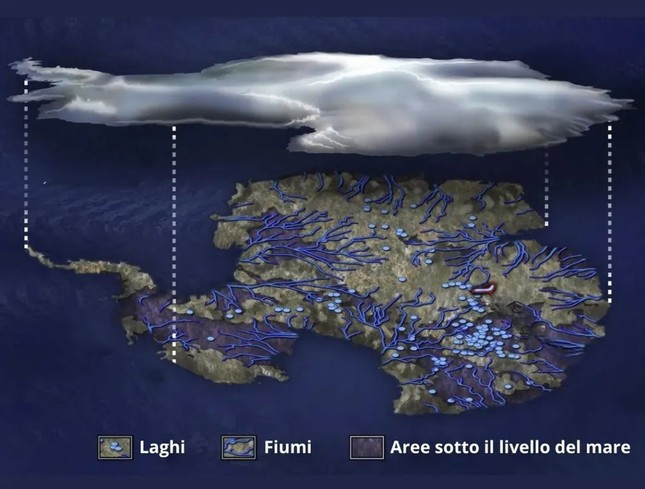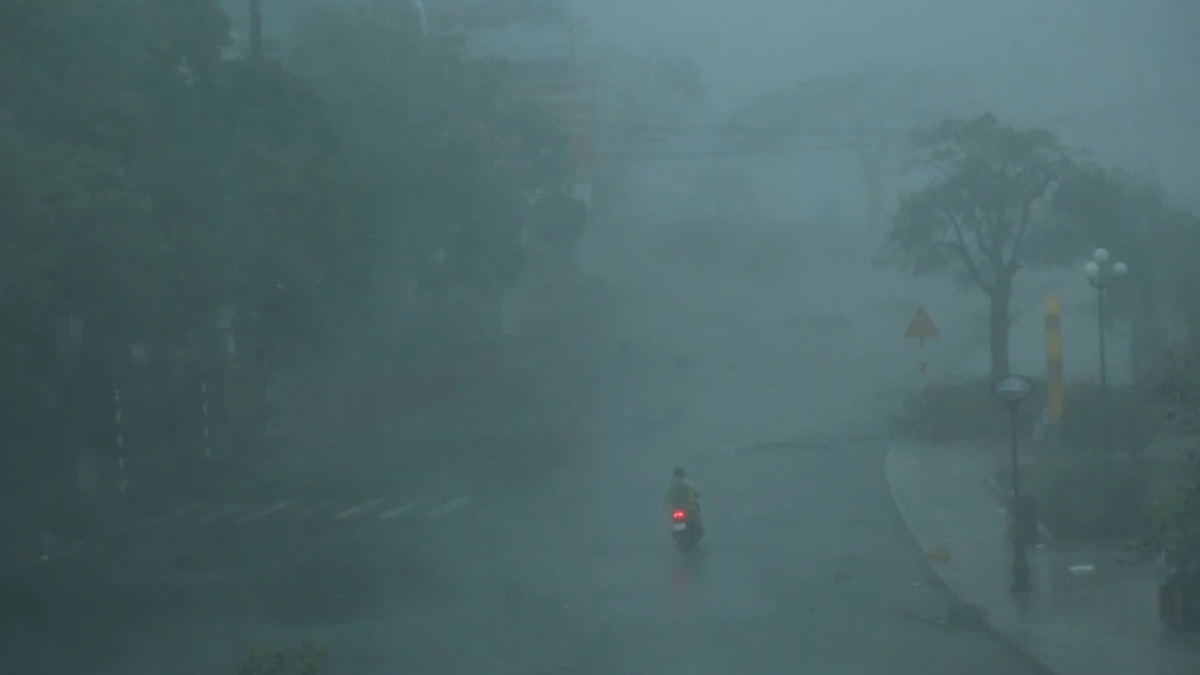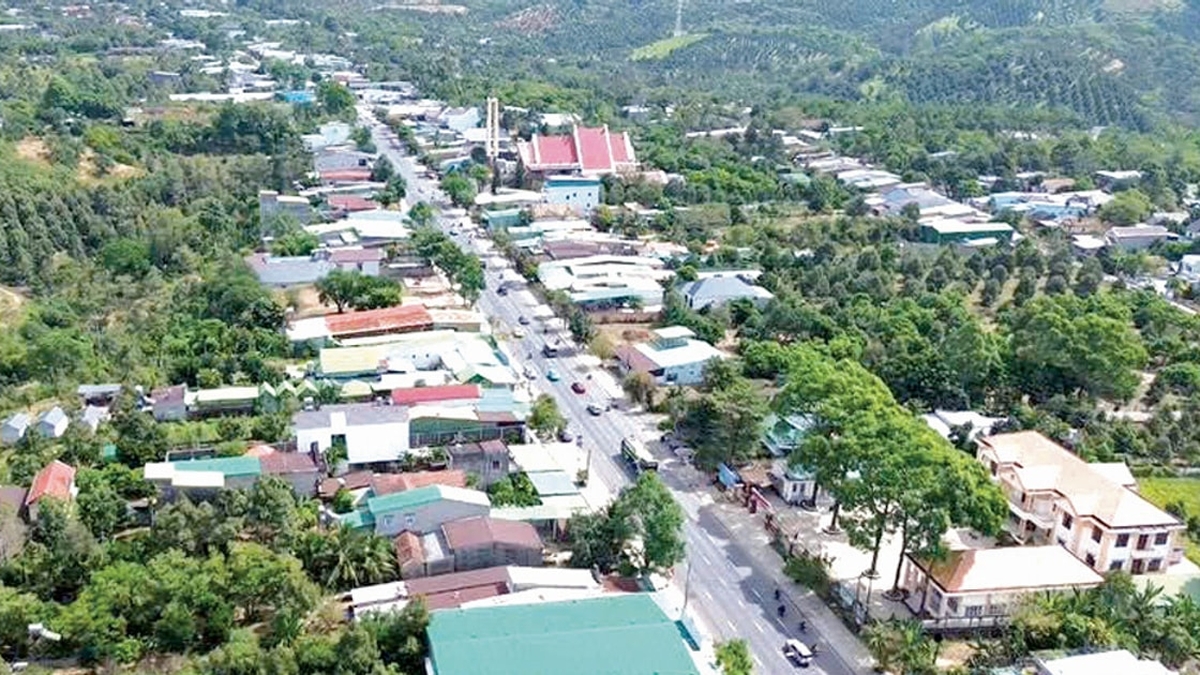Scientists studying the frozen Lake Enigma in Antarctica have discovered an ecosystem filled with strange bacterial populations below.

Graphic showing lakes (blue dots), rivers (blue lines) and areas below sea level (purple) beneath the ice sheet in Antarctica. (Photo: INGV)
Lake Enigma in Antarctica is a permafrost lake, which until recently was thought to be frozen solid.
During an Antarctic expedition from November 2019 to January 2020, researchers surveyed the lake using ground-penetrating radar and found at least 12 meters of liquid water under the ice. They then drilled into the ice and lowered a camera to explore the lake’s depths. Based on the chemical composition of the salts in the water, the researchers hypothesized that the lake’s water is constantly replenished from the nearby Amorphous Glacier through an unknown underground passage.
Ecosystem hidden under the Antarctic ice
Scientists discovered that, despite being isolated from the atmosphere, the waters of Lake Enigma are home to a number of bacteria, covering the lake floor in small patches known as microbial mats. Many of these organisms are capable of photosynthesis, giving the lake high concentrations of dissolved oxygen.
Some mats form thin, spiky covers on the lakebed. Others look like “a thick, crumpled mat, sometimes forming loose tree-like structures up to 40 centimeters tall and 50 to 60 centimeters in diameter,” the researchers wrote in the study, published in the December issue of Communications Earth and Environment.
The lakebed bacteria included several species of Patescibacteria—tiny single-celled organisms that attach to larger host cells in mutually beneficial or predatory relationships. These organisms have never been found in glacial lakes and typically do not thrive in high-oxygen conditions, suggesting that these Patescibacteria may have developed unique metabolic tricks to survive.
“This discovery highlights the complexity and diversity of food webs in Antarctic permafrost lakes, where symbiotic and predatory lifestyles are previously unknown possibilities,” the researchers wrote.
The lake's extreme ecosystem could provide insights into the unique conditions where microbial life might be found on other worlds , said study co-author Stefano Urbini, a geophysicist at the National Institute of Geophysics and Volcanology in Italy.
According to Live Science
Source: https://giadinh.suckhoedoisong.vn/phat-hien-he-sinh-thai-chua-tung-thay-ben-duoi-ho-nuoc-bi-mat-o-nam-cuc-172241225073341835.htm




























![[Photo] National Assembly Chairman Tran Thanh Man visits Vietnamese Heroic Mother Ta Thi Tran](https://vphoto.vietnam.vn/thumb/1200x675/vietnam/resource/IMAGE/2025/7/20/765c0bd057dd44ad83ab89fe0255b783)









































































Comment (0)